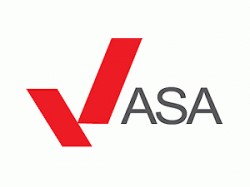Sky Broadband, TalkTalk and Virgin Media Slapped for Misleading UK Ads

The United Kingdom’s Advertising Standards Authority (ASA) has kicked off 2014 by upholding a variety of complaints against “misleading” adverts for broadband and other services supplied by Sky Broadband (BSkyB), AOL Broadband, TalkTalk, Virgin Media and separately also YouView’s (IPTV) platform that some of the big ISPs use.
The ASA, much like some other organisations, has been on hiatus since before Christmas and so today represents somewhat of a shotgun blast of new adjudications for advertising complaints that were not published during the holiday period. So instead of spamming readers with lots of individual stories we’re going to do a short summary of each.
Advertisement
1. Sky Broadband (ASA Ruling)
Back in October 2013 Sky found itself in trouble after a direct mailing (post) advert for their service was found to have “misleadingly exaggerated” the effect of Virgin’s broadband Traffic Management Policy (TMP) and unfairly “denigrated” VM’s brand (here) by claiming that the TMP meant Virgin wasn’t as “superfast” as claimed.
Despite the original advert being banned it appears as if Sky adjusted the wording to compensate and then ran it again. But today’s ruling, which replaces the October 2013 one, found that the new wording still “misleadingly exaggerated the effect of Virgin Media’s traffic management policy on its broadband customers“.
2. AOL Broadband (ASA Ruling)
Advertisement
BT complained that a comparison table on AOL Broadband’s (TalkTalk) website, which attempted to show that the ISP was cheaper than its competitors, was misleading because it omitted several key features of BT’s package (e.g. the performance and capability of BT’s latest HomeHub routers and other services / content like SmartTalk and free BTSport TV).
The ASA ultimately agreed with BT that AOL’s advert was “misleading” because it had not considered the above features, which the authority believed “would influence customers’ decision in the comparison with AOL Broadband“.
3. TalkTalk (ASA Ruling)
BT complained that a regional press advert for TalkTalk’s phone and broadband service, which claimed to offer a “BETTER DEAL compared to BT“, was once again misleading because it omitted several key features of BT’s package in its comparison (e.g. the performance and capability of BT’s latest HomeHub routers and other services / content like SmartTalk and free BTSport TV).
Advertisement
The ASA, as with the its ruling against AOL above, once again agreed with BT that TalkTalk’s promotion was “misleading” because it “had not stated several key features of BT’s package which we considered would influence customers’ decision in the comparison with TalkTalk Telecom“.
4. Virgin Media (ASA Ruling)
Two people complained about two circular adverts for Virgin Media’s service that claimed to offer network coverage in areas where the customers seemed unable to receive it. The first ad claimed that “over 80% of your neighbourhood is connected” to VM’s cable service and the second said “we’re in your neighbourhood and didn’t want you to miss out“.
The ASA, as with several similar complaints before, ultimately ruled that both adverts were misleading because the first mailing “claimed that the majority of the recipient’s immediate area was connected to Virgin’s services when that was not the case” and the second mailing was similarly flawed.
5. YouView (ASA Ruling)
Sky complained that a regional press advert for YouView’s TV service, which claimed to offer a “Huge on demand library With free TV and movies” and stated that it was “Available from BT, TalkTalk and all major retailers“, was misleading because it falsely implied that movies were free on YouView and it did not make clear that to receive free TV consumers were required to purchase a set-top box.
The ASA considered that the first claim was misleading because consumers were likely to be believe that the service offered “free TV and movies“, which could be confused with paid TV packages from rivals and other on-demand services. On the second complaint the ASA noted that YouView’s website stated that the box would cost “from £197.99” and they considered that the ad should have included similar information regarding the indicative cost to the consumer of buying the box. But because it did not, they concluded that the ad was likely to mislead.
In all of the above cases the ASA banned the adverts and warned the companies not to make the same misleading claims again.. though many of them probably will.
Mark is a professional technology writer, IT consultant and computer engineer from Dorset (England), he also founded ISPreview in 1999 and enjoys analysing the latest telecoms and broadband developments. Find me on X (Twitter), Mastodon, Facebook, BlueSky, Threads.net and Linkedin.
« Admin Fail Causes Hassle for BT Openreach Quality of Service Consultation






















































Comments are closed